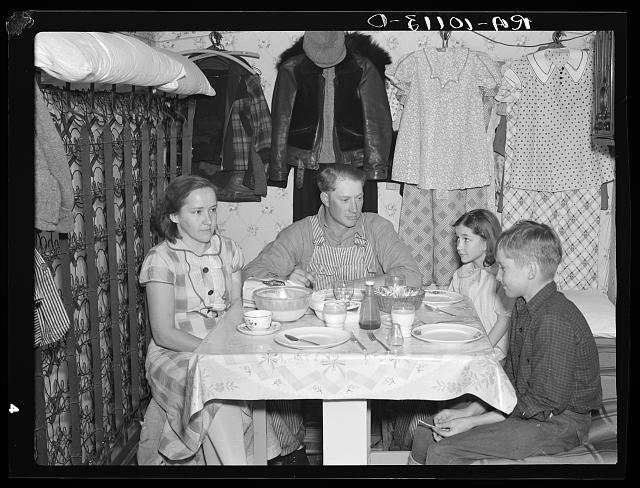
Editor’s note: This article first appeared at marcusbrotherton.com.
It’s fair to say that many people go through at least one season of financial difficulty sometime in their lives.
It’s often part of the ladder-climbing experience when just starting out. Or it occurs between jobs, or is due to an injury or downed economy.
The season, although difficult, can actually hold forth much benefit. Call these benefits surprising silver linings, lessons learned from hard times.
About ten years ago, in my mid-30s, I officially opened my own editorial business.
Five months later, my business officially failed.
What followed was what my wife Mary Margaret and I today call “our lean season.†We weren’t poor by global standards—we still had a roof over our heads and ate three meals a day.
But by G8 standards, we were broke. We were uncertain about how to pay our bills, in danger of losing our house, and fearful and stressed about our immediate and future financial situation.
During that winter, I applied for more than 80 jobs. I went on interviews, attended job fairs, networked with business owners, and passed out copies of my resume by the dozen.
Blame the collapse of the newspaper industry. The field was flooded with hungry, well-credentialed journalists looking for work. Time after time, the answer was no.
Today, almost a decade later, Mary Margaret and I talk with people who have experienced similar lean seasons. We have good friends, for instance, a surgeon and his wife, who tell about the few years in medical school right after their daughters were born. They lived in an apartment with rats.
This is what we learned about lean seasons from talking with others, and also from our own experience.
1. You discover you have good friends.
Some people experience financial difficulty and react by feeling embarrassed. They clam up and try to keep up appearances of financial success.
We chose to go the other direction. We openly talked about our situation with the people closest to us, seeking their emotional support and gleaning their advice.
It’s funny. Word gets around, and weird things begin to happen. Someone brought us ham. Another person fixed our car for free.
If you’re normally in the position of being self-sufficient, it can feel strange at first to receive the kindness of people in your community.
But it didn’t feel like a hand-out to us. It felt like a hand up. People knew we would do it for them if needed, and it was simply our turn to receive.
2. Your character gets shaped for the better.
I don’t look back and speak about our lean season with fondness. Those weren’t “the good old days,†and, no, I’d never want to go through that time again.
But out of that season came good. It created empathy with people who struggle financially. It created a good type of humility, a recognition that we’re all in this life-thing together.
And it created an appreciation for the simpler things of life. I remember when my wife and I were finally able to afford a $40 Costco membership. We literally whooped and gave each other high–fives.
3. Desperation can become one of your greatest allies.
If you have a job you dislike and dream of doing something different, it can be easy to continue on year after year. You’re filled with angst, but your steady salary makes it difficult to walk away.
Desperation can provide the courage needed. The same is true if you’re flat out of work.
During our lean season, I became fearless in how I approached my job search. I’d talk to anybody, anytime, about any opening.
I’d brazenly ask people for career-oriented favors—either to be introduced to their boss or to put in a good word for me about an opening.
Ultimately, my desperation propelled me to create my own job. Several months later I restarted my editorial company. And the second time around, it succeeded.
Have you ever gone through a lean season? Perhaps you’re there now. What have you learned along the way?
______________________________________________________
Marcus Brotherton is a regular contributor to the Art of Manliness, and the author of Feast for Thieves.


